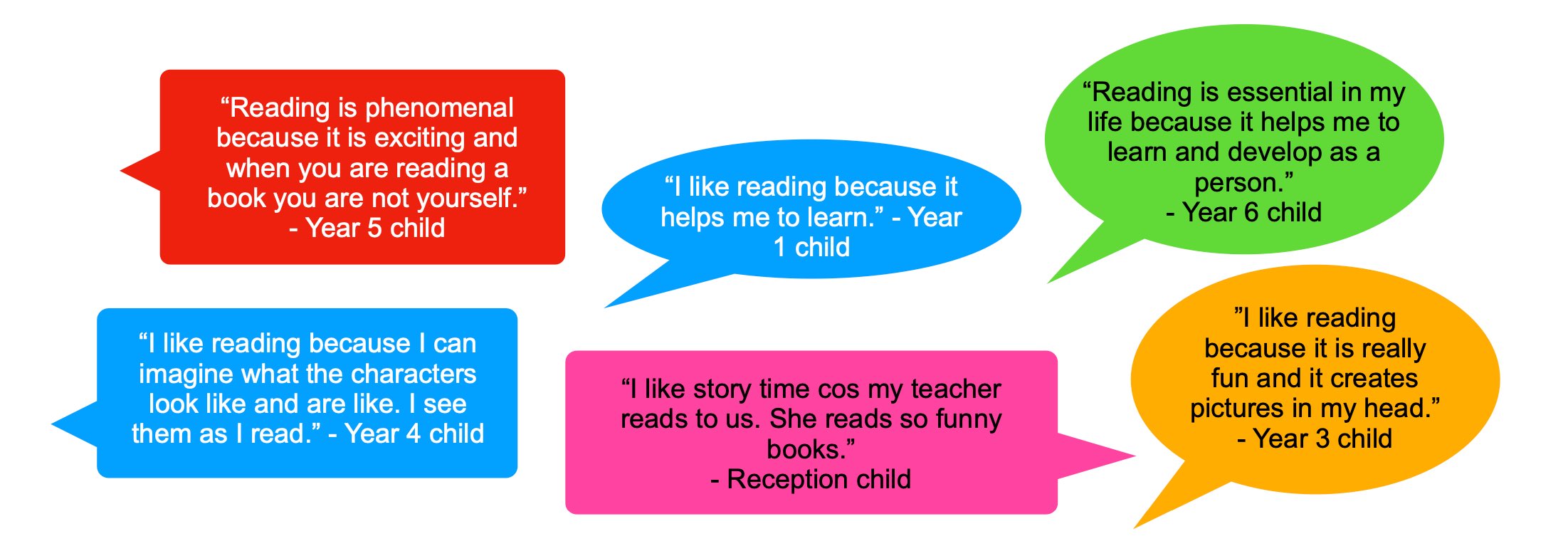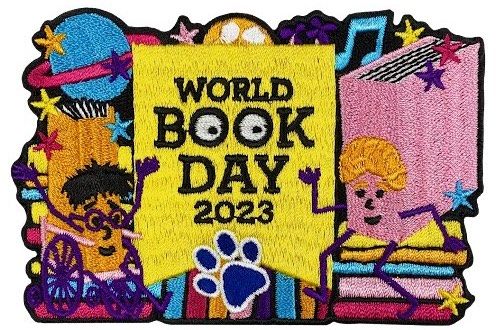

Curriculum / Reading
“The more that you read, the more things you will know. The more that you learn, the more places you’ll go.” – Dr. Seuss
Our Vision:
Our vision at the Leys is for children to become readers for life, who want to read for both pleasure and to further their knowledge.
Aim:
We aim to provide expertise in the teaching of phonics and reading so that children are able to read fluently as quickly as possible in their school career. This will ensure all children read with confidence and accuracy. Once children are fluent they will develop a love of reading to ensure their vocabulary and comprehension skills can be maximised. Our curriculum ensures that stories, poems, rhymes and non-fiction texts are carefully chosen to reflect the children’s prior experiences. Children will become familiar with and enjoy listening to a wide range of high quality texts.
Delivery:
The ambitious early reading curriculum at The Leys exceeds the National Curriculum expectations. The school has clear expectation of children’s early reading skills through the delivery of The Leys Letters systemic synthetic phonics scheme. This is taught from the second week of Reception, to ensure that children who are at risk of falling behind are identified by their third week in school. Benchmarks are clear through rigorous, in the moment assessments alongside half termly phonics assessments to ensure that all children keep up rather than catch up. If children are falling behind they are given targeted support immediately, showing fidelity to The Leys Letters intervention programme. Teachers give children practice in reading and re-reading books which match the Grapheme Phoneme correspondence they have learnt in school. As soon as children can recognise unfamiliar words they are introduced to a wider range of literature and no longer read decodable books. At The Leys importance is placed on exemplary child-adult interactions. All adults have a pivotal role to play in modelling effective language and communication. Our pedagogy ensures adults model clearly how to weave magic through literature. All teachers will read aloud, re-read and use teaching strategies e.g. asides, to build familiarity and understanding of the texts which children become emersed in.
Outcome:
As we believe that reading is key to all learning, the impact of our reading curriculum goes beyond the result of statutory assessments. Children have the opportunity to enter the wide and varied magical worlds that reading opens up to them. As they develop their own interest in books, a deep love of literature, across a range of genres, cultures and styles, is enhanced.
All children will read with speed and accuracy. This will ensure they have the stamina to reading increasingly challenging material independently. Children will be able to enjoy a range of increasingly challenging material and develop the love and gratification of reading.

At the Leys we follow The Leys Letters systematic synthetic phonics programme. For children in EYFS and KS1, while they are working on this phonics programme, we use the reading scheme Bug Club phonics during our phonics sessions and as our home readers.
Early reading is very important for children when they are learning to read. To ensure that children get a really secure foundation which will enable them to thrive and become confident, fluent readers we do the following:
In Nursery, children have a selection of core Nursery Rhymes and poems which they learn throughout the year. These are shared weekly with parents through our online learning journal Tapestry. Children are read to daily and the class has a fantastic and inviting reading area for the children to explore during their Child Initiated Learning. After giving children time to settle in during the first term of school Nursery children then begin to learn phonics. In Nursery they focus on Phase 1 of our The Leys Letters phonics scheme. In this phase children learn to listen to and discriminate sounds they hear. They do this through 7 different aspects- Environmental sounds, Instrumental sounds, body percussion, rhythm and rhyme, alliteration, voice sounds and oral blending and segmenting.
In Reception, children have a selection of core books and poems, as well as weekly books which they learn throughout the year. These are shared weekly with parents through our online learning journal Tapestry. Children are read to daily and each class has a fantastic and inviting reading area for the children to explore during their Child Initiated Learning, one class which focusses on quite reading and one class which focusses on retelling and performing familiar stories. Starting from the second week of school the children begin to learn phonics. In Recpetion children work through phases 2-4 of The Leys Letters phonics scheme. In phase 2 children learn the phonemes for most of the letters of the alphabet and begin to use these to read and write simple words and sentences. In phase 3 children learn the rest of the phonemes for the letters of the alphabet and begin to learn digraphs (2 letters that make one phoneme e.g. ch) and trigraphs (3 letters that make one phoneme e.g igh). In phase 4 children recap everything they have learnt in phase 2 and 3 and then begin to read longer words and polysyllabic words (words which contain more than one syllable).
In Year 1, children have a selection of core books which they use in line with their writing. Children are read to daily and have a fantastic reading corner which they can use throughout the school day. In phonics children recap phase 3 and 4 and then work through phase 5 of The Leys Letters phonics scheme. In phase 5 children learn the alternate graphemes for phonemes they have already learnt in the previous phases, these include graphemes such as ‘ay’ and ‘ea’. They then move onto the alternate pronunciations of graphemes they have previously learnt for example when the letter a makes the phoneme ‘o’ in words such as ‘want’ and ‘what’.
In Year 2, children have a selection of core books which they use in line with their writing. Children are read to daily and have a fantastic reading corner which they can use throughout the school day.
In Year 2 children move onto looking at spelling and learning the spelling rules for all of the phonics that they have learnt.
Free phonics games
www.phonicsplay.co.uk
How to pronounce sounds
Here
Free phonics resources and break down of letters and sounds phases-
www.letters-and-sounds.com
How to help with communication, reading and writing skills at home -
www.wordsforlife.org.uk
Book recommendations -
www.lovereading4schools.co.uk
Book recommendations -
www.booksfortopics.com

This year for world book day we had an amazing time working with our visiting poet. Each year group spent some time writing a section of a whole school poem and making up actions for their section. At the end of the day the children all met together in assembly and performed the poem. We also enjoyed lots of other world book day activities in our classes.